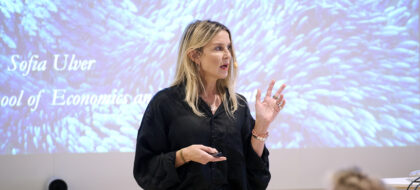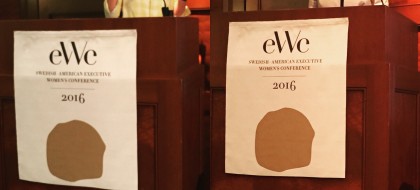Global Consumer Society Megatrends- Metso Tissue Seminar, Karlstad, 20 Sept 2012

 Metso is a global supplier of technology and services to customers in the process industries, including mining, construction, pulp and paper, power, and oil and gas. The 20’th of September they hold their annual Tissue Seminar in Karlstad, Sweden, for their many world-leading (in the tissue industry) global customers.
Metso is a global supplier of technology and services to customers in the process industries, including mining, construction, pulp and paper, power, and oil and gas. The 20’th of September they hold their annual Tissue Seminar in Karlstad, Sweden, for their many world-leading (in the tissue industry) global customers.
At the Metso seminar Sofia talked about nine cultural trends in consumer society that in various ways will influence consumption in general, and hence have consequences for the tissue industry, now and in the future in terms of offers and brand positioning. Besides the possible cultural consequences- feminization- anticipated from the rise of women’s power globally, the largest of all cultural megatrends is the one of authenticity. It means that consumers demand that brand owners are genuine, transparent, have integrity, have altruistic intentions (besides commercial), and can offer a story that fits with how one wants to see the world today. In line with this comes the trend of neogreen consumption and downscaling, which is ”neo” in that it’s not a left-wing movement but a mainstream middle-class movement rooted in genuine care for the planet and, not least, in status aspirational motives. Consuming fewer but better (in all aspects) things is the embodiment of ”proper” consumption for the middle-class in the coming centuries. This also goes for the trends of angelic politicization and prosumerism where, without being typically tied to political parties, capitalism has come under scrutiny and consumers are weaving altruistic and solidarity-enhancing (traditionally typical leftwing practices) subsystems into the larger system. Here companies that don’t know how to leave some of the power in the hands of the consumers will likely fall short. At the same time consumers’ and companies’ mutual ”need” for innovations has created a culture of refinement where consumers increasingly want to engage intensely in hobbies as connoisseurs, where consumers also need companies to help them be so. In order to afford this refinement within many consumption categories, many consumers need to polarize their consumption—that is, they buy really cheap and really expensive, in contrast to the historically sharp lines between the patterns of social classes.
All and all consumption is democratized and brand positioning is very much about being aware of new values in consumer culture(s) that used to be politically tied but now are turning into mainstream, middle-class, symbolic consumption. On top of this, it never hurts to tap into the growing trend of serendipity where consumers organize themselves in new, and unexpected ways, and also expect companies to offer these moments of surprise and excitement.





















































